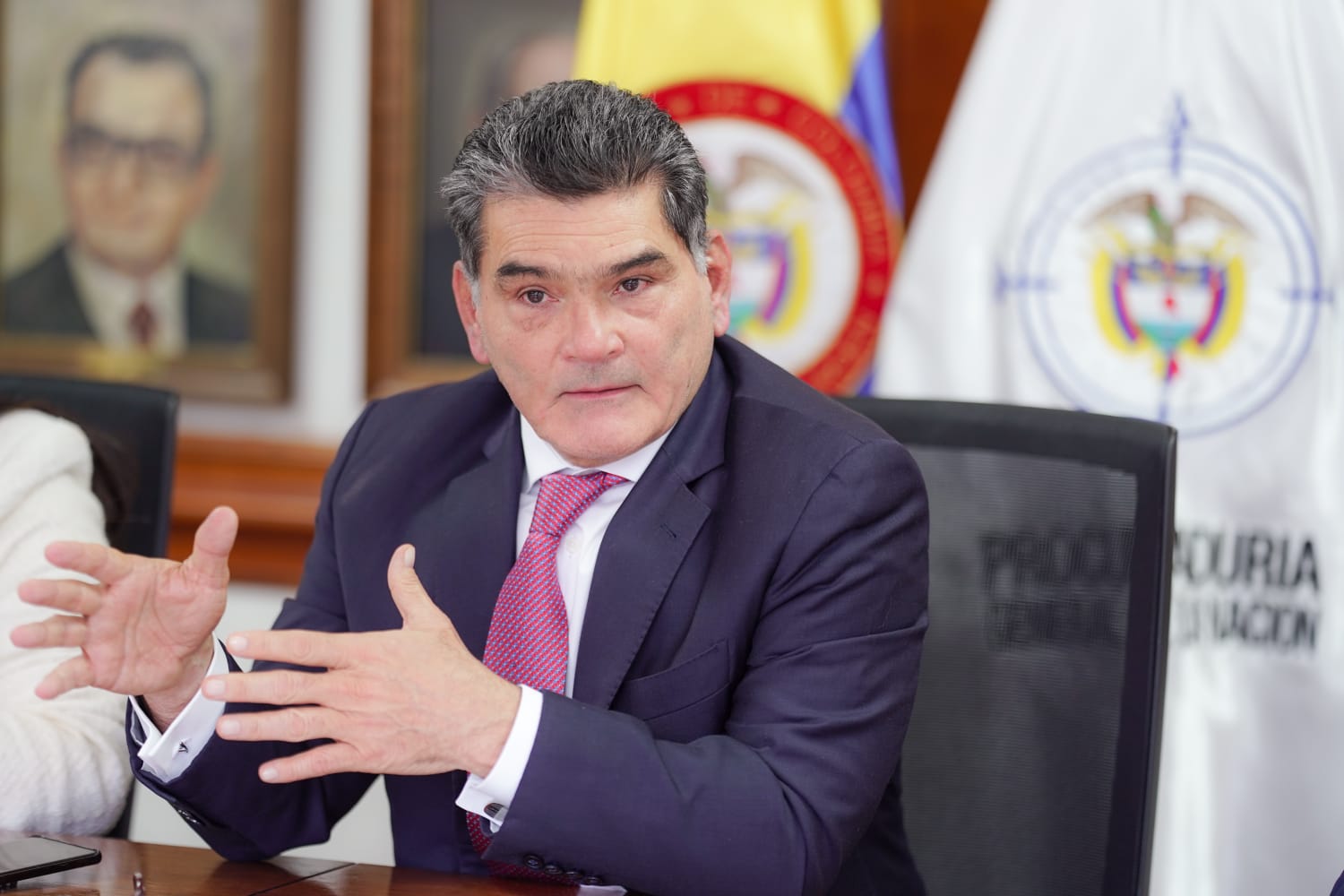Political and academic sectors welcomed the agreement to reduce tensions in the country and demanded its implementation.

Political sectors and analysts described the signing of an agreement between the Government, the Cortes, and Congress to reduce tensions and violence in political debate as a necessary and urgent initiative amidst increasingly high social and political tensions.
The document, signed this Monday after a three-hour meeting mediated by the Catholic Church, was attended by President Gustavo Petro; Senator Efraín Cepeda, President of Congress; Representative Jaime Raúl Salamanca, Speaker of the House; Judge Jorge Enrique Ibáñez Najar, President of the Constitutional Court; and Judge Octavio Augusto Tejeiro Duque, President of the Supreme Court of Justice.
The agreement was signed, the central text of which states: "We commit ourselves together and invite the entire country to listen to, value, and respect one another in brotherhood; to disarm and harmonize our words; and to reject all forms of violence as a way of resolving political and social conflicts."
In response to the progress made, one of the first voices to be raised was that of Attorney General Gregorio Eljach, who emphasized that "disarming the word was the term used."
"We concluded that this is not a one-time activity, but rather that we must continue promoting the meeting of Colombians, the business community, and the Church itself. The commitment is to reflect and ensure that the rule of law is upheld, and I proposed that oversight bodies be taken into account ," he said upon leaving the meeting, which he also attended.

Gregorio Eljach, Attorney General. Photo: Private Archive
Voices of support for the initiative were also heard from Congress. One of them was Julián Gallo, a senator from the Comunes Party: "We welcome the signing of this joint declaration on the need for dialogue, de-escalation of language, and 'disarming the word,'" he said, adding that it is "a necessary step at a time of growing tension between the country's various sectors."
More skeptical on the issue was the councilor of the Democratic Center, Daniel Briceño, who considered the call to de-escalate language as "a plot" and indicated, through his account on the social network X, that the opposition must continue "without respite."
"I'm not falling into Petro's trap, where he asks us to 'de-escalate the language and embrace each other,' because while he was asking for that, he was decreeing a referendum, talking about a constituent assembly, breaking the fiscal rule, and announcing tax reform," he wrote.
The important thing is to make it happen: experts Academic circles also celebrated the initiative. Angelika Rettberg, a professor in the Department of Political Science at the University of the Andes, called it "an excellent initiative that accurately interprets the national moment. Ideological and programmatic differences should never cost a person their life or physical integrity."
"The first thing that needs to be analyzed is whether it will truly be respected. This is a verbal agreement, and if it isn't followed through, it won't have any major consequences. It remains to be seen what gestures of goodwill will emerge from this signing, whether it will actually achieve a calmer political discourse. The real achievement would be to achieve a more peaceful and fluid electoral process," said Yann Basset, director of the Democracy Studies Group at the Faculty of International, Political, and Urban Studies at the Universidad del Rosario.
Political scientist and analyst Jairo Libreros expressed the same opinion, stating that "the agreement is the appropriate roadmap to discourage the radicalization of political relations in Colombia" and an opportunity to stop the crisis of political intolerance "that deteriorates public debate and undermines the political stability of our constitutional democracy."
But he clarified that intentions are one thing, and the reality that may arise from them is another. "It's one thing to agree on the need for an agreement, and it's quite another to turn the agreed-upon consensus into reality in the midst of an electoral process marked by the attack against candidate Miguel Uribe, with an escalation of terrorism in different parts of the country, and with the political threat from the Nariño House of Representatives to even call a Constituent Assembly if Congress doesn't obediently approve the text promoted by the Petro government ," he emphasized.
eltiempo





